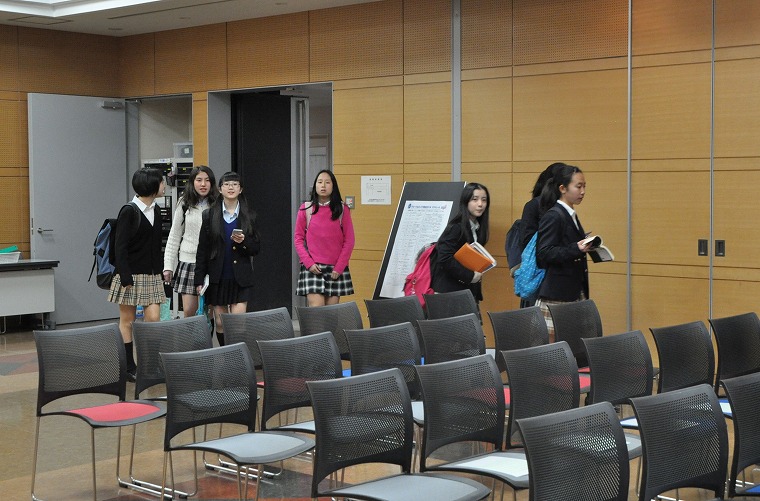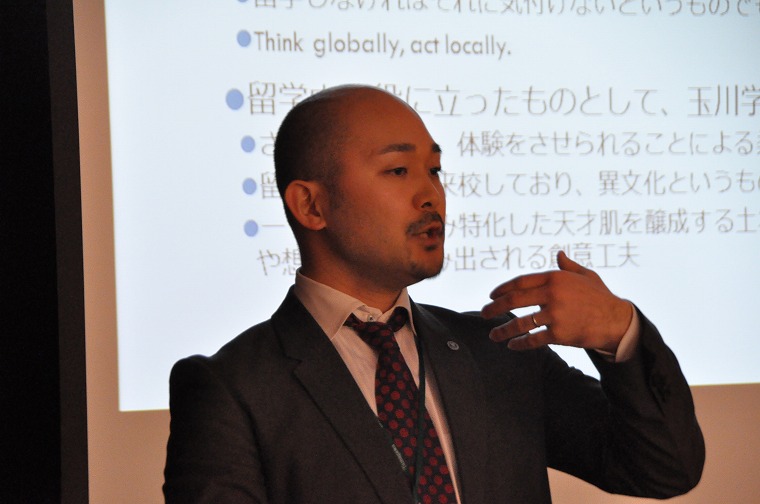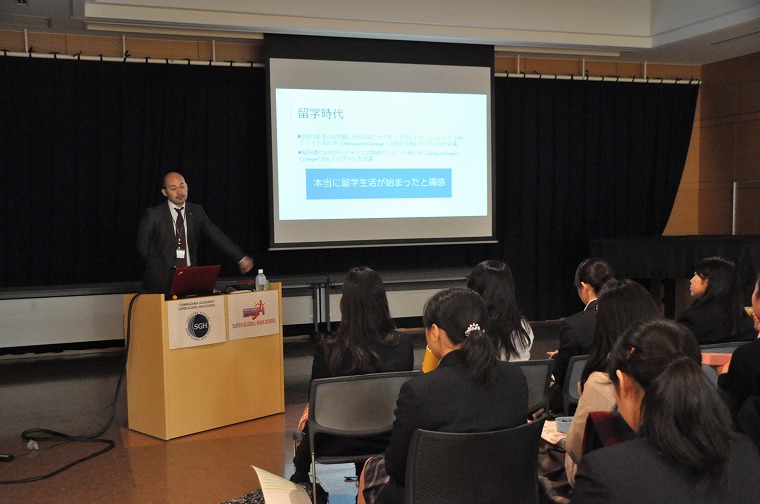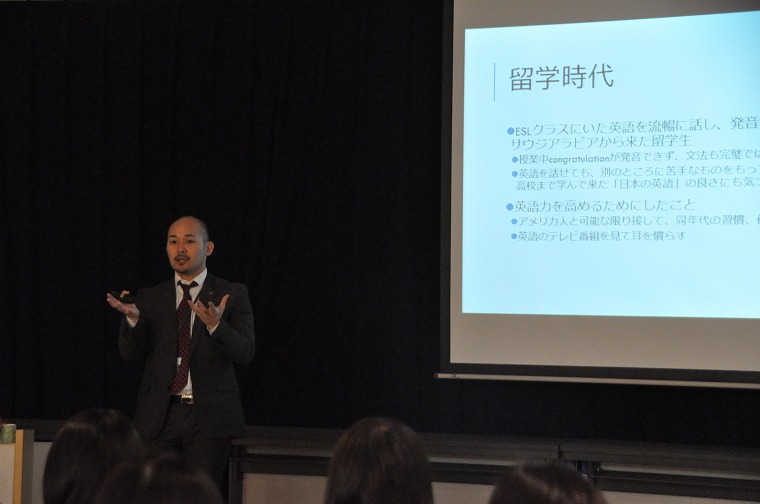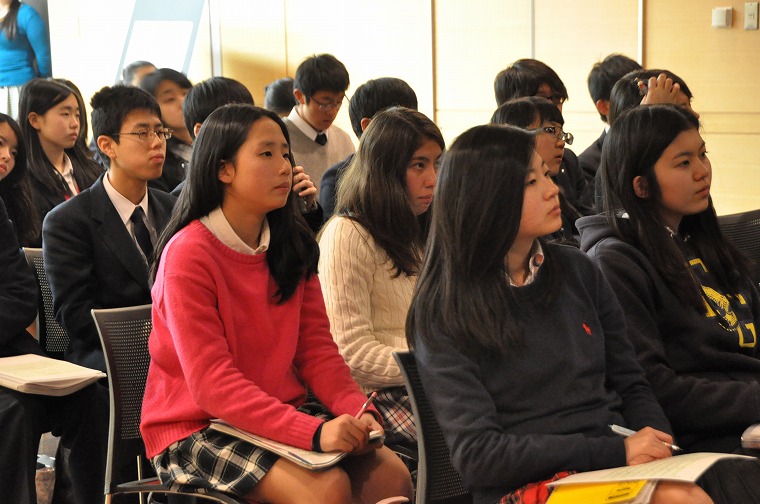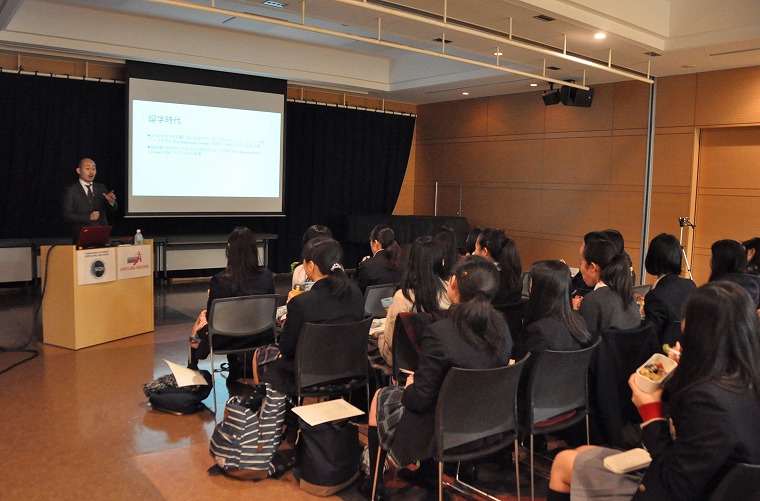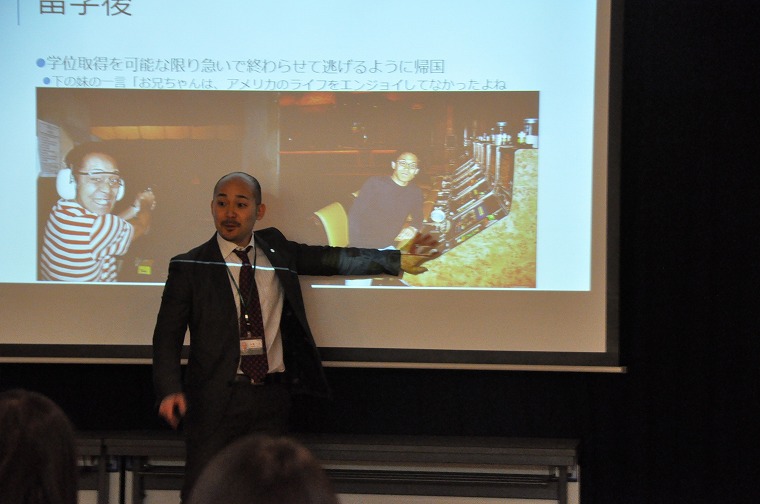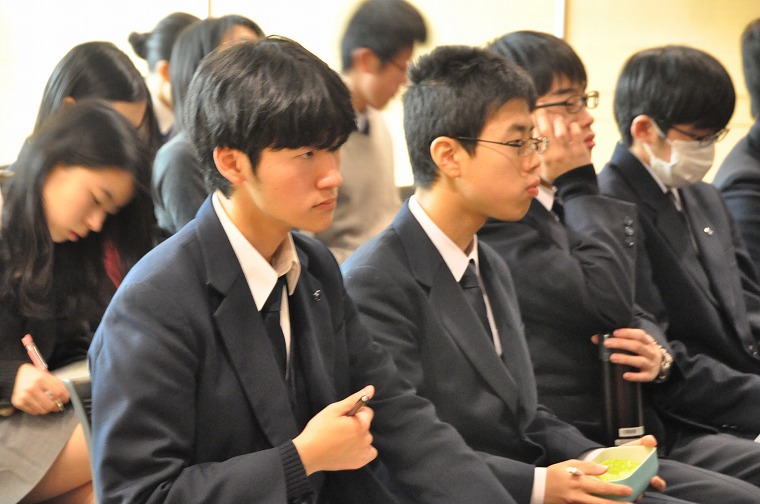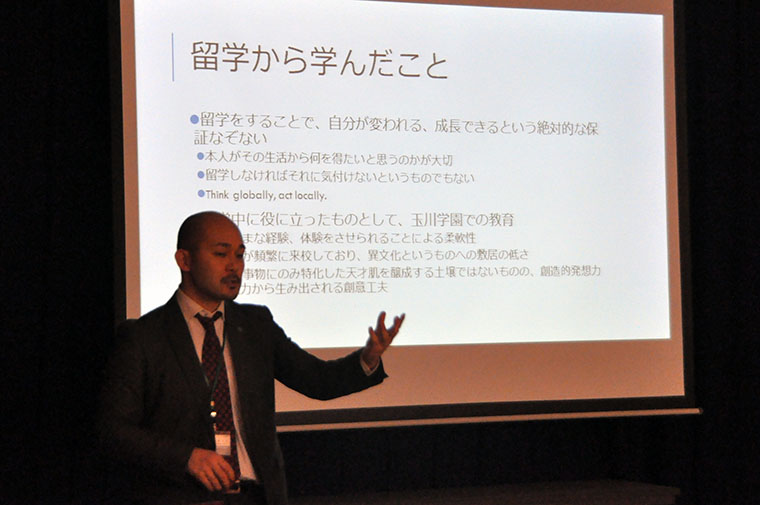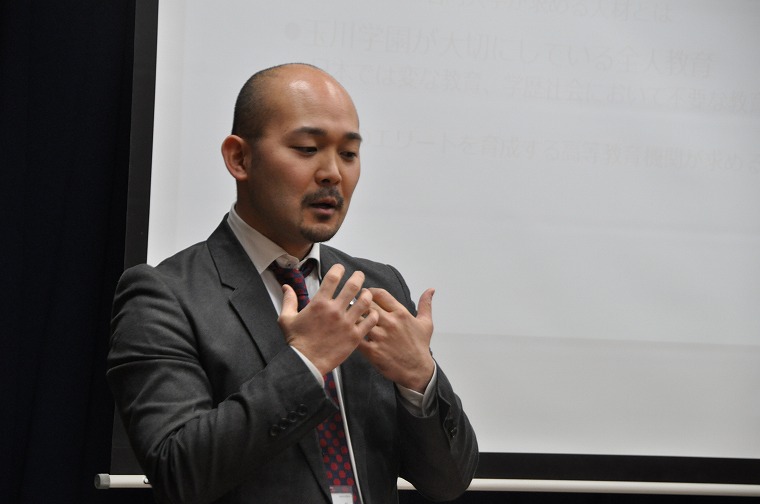The 17th lecture of the Global Career Lecture Series, the last one for this school year, was held on a snowy day.
No sooner had the lunch break started, the students assembled in the hall. The lecture series had definitely become popular to the extent that even students who were taking tests in the following period attended.
The lecturer was Mr. Obara, who is an associate professor at the Faculty of Education in Tamagawa University. He himself graduated from Tamagawa Academy and was a student from kindergarten to high school. He talked about his experiences while studying in the U.S. after graduating from high school, and about his feelings and experiences before and after going there.
At the beginning, he introduced himself telling about things ranging from his birthday to the universities at which he studied in the U.S. He then told the audience about an episode in his life: his father encouraged him to study abroad when he was in the 10th grade, but he was afraid of going abroad and finally refused to go as he was very concerned with his involvement in his school club. However, after he experienced an English program in the third term of 12 grade, which was provided by the American College that he would enter, he changed his mind and prepared himself to start a new chapter of his life taking classes in English as an student in America.
After arriving in America he found that he was not necessarily inferior to the other students who came from various countries. The English grammar that he learned in school was useful to him as a foreign student, though an often heard criticism of English education in Japan is that it is rather grammar-oriented.
In order to develop his English skills, he made decisions to engage in a lot of activities like spending time with local people his own age and listening to the news on the radio for listening practice. He realized there were differences in culture, customs and the way of thinking between the U.S. and Japan but he realized that he and his American hosts were fundamentally the same as people. He described the process of coming to such an understanding while the audience listened with great interest.
Continuing his story, he explained that two years later he moved to Boston University. There he realized that there was a gap in the academic ability between the other students and himself. He was forced to accept the fact and sometimes was depressed by it but he patiently tried doing whatever he could to improve. He successfully finished graduate school and he went on to pursue a master’s degree. During this time “9/11″ happened, which entirely changed the social atmosphere in the U.S.
After that, he finished his doctorate at UCLA and achieved his final goal in studying abroad. He got to know a lot of students who had various personalities and talents and also met many other minority students. However, in the process, he began to feel some animosity to the U.S. as it was becoming a harder place to live as a minority.
He later conceded that these things changed saying “But when I lived there with my family later, I was able to see America from a different point of view,” he said, showing the audience pictures from that time.
The students listened very attentatively to his stories and experiences and the allotted time flew by very quickly.
When asked about what he took from studying abroad, he emphasized the importance of focusing on what one wants to obtain through his or her studies. He left with the message that studying abroad is not the only way to learn, and it is more important to know what one really wants to do.
Finally, he commented that what he internalized from the “whole-person education” philosophy of Tamagawa Academy always supported him during his time in the U.S. In high school, he dedicated himself to study and his school club, developing skills that would be very useful to him in his later years. He concluded his speech by saying, “I naturally obtained the whole personal education philosophy in Tamagawa Academy. And through my time in America, I grew to understand that these educational ideas and methods meet the global standard that regards students becoming well rounded as being imperative to developing into exceptional people overall.
His stories related concrete experiences he developed a closeness with the audience that made the atmosphere in the hall pleasant and lively during the lunch break.




